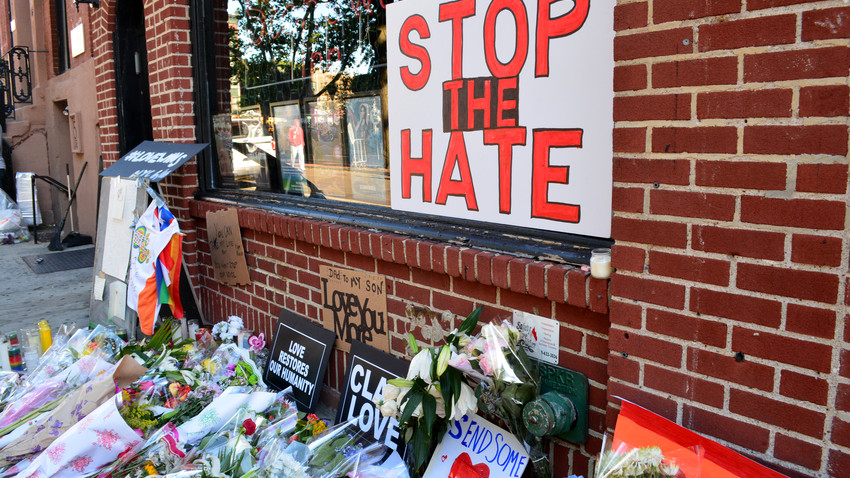
"Then They Came For Me"
The nation is still reeling from Sunday morning’s headline of the bloody massacre in an Orlando night club in the wee hours of a new week. But already the news media’s scrolling litany of superlatives—“the worst mass shooting in U.S. history” “the greatest mass murder in American history”—along with its non-stop coverage of this horrific tragedy have numbed the American psyche once again. And as it was for San Bernardino California and Newtown Connecticut and Columbine Colorado, the 24-hour news cycle is eventually coopted by the new headline and the relentless pursuit of the next “breaking news.”
But left in the aftermath and forgotten in the chase will be the fifty families who will go on grieving their crushing loss—fifty funerals and memorial services, fifty caskets or urns, fifty homes and countless hearts forever broken. Fifty. A number that eventually may feel small, quite small . . . in comparison to a figure one day somewhere else that is sure to be higher.
Beyond the sheer tragedy of it all, what is stunning about the Orlando massacre is the convergence of the most inflamed issues that plague this election cycle’s national debate: Muslims, the LGBT community, the place of immigrants in this nation, the place of firearms in this society. But let’s reflect for a moment about minorities.
Take the minorities in this story. The killer was an American-born Muslim from an immigrant family. The victims by and large were members of the LGBT community. The night club theme that fateful early morning was “Latin Night.” Minorities—people who are never identified as “minorities” in the raucous political debate of this presidential election season, but who nonetheless have been very much targeted by the rhetoric of this campaign—minorities.
Come to think of it, my own faith community is regarded as a religious minority. One candidate had trouble even pronouncing our name. But that’s OK. I grew up a minority as an American missionary’s kid in Japan. As an adult I remain in the minority as a member of a Sabbatarian community—one that worships on Saturday, while the rest of the Christian nation worships on Sunday. But I am proud to be a member of a minority. And I am grateful to be a citizen of a nation where minorities are protected from the majority.
But I fear that there are some even within my own faith community who have embraced the crowd-pleasing “keep the minorities out” spirit that now troubles America. I wonder if we have seriously, sufficiently thought through the implications of that populist mentality. Immigrant minorities, LGBT minorities, Muslim minorities, Sabbatarian minorities—the chant to “send them all home” eventually will catch up with us all.
Ponder this confession from the German pastor Martin Niemöller during the dark days of the Nazi government, words that bear repeating in this season of anti-minority fervor (https://en.wikipedia.org/wiki/First_they_came_):
First they came for the Socialists, and I did not speak out—Because I was not a Socialist.
Then they came for the Trade Unionists, and I did not speak out—Because I was not a Trade Unionist.
Then they came for the Jews, and I did not speak out—Because I was not a Jew.
Then they came for me—and there was no one left to speak for me.
“‘You will leave Me all alone. Yet I am not alone, for My Father is with Me’.” (John 16:32) Jesus is still the minorities' Best Friend.